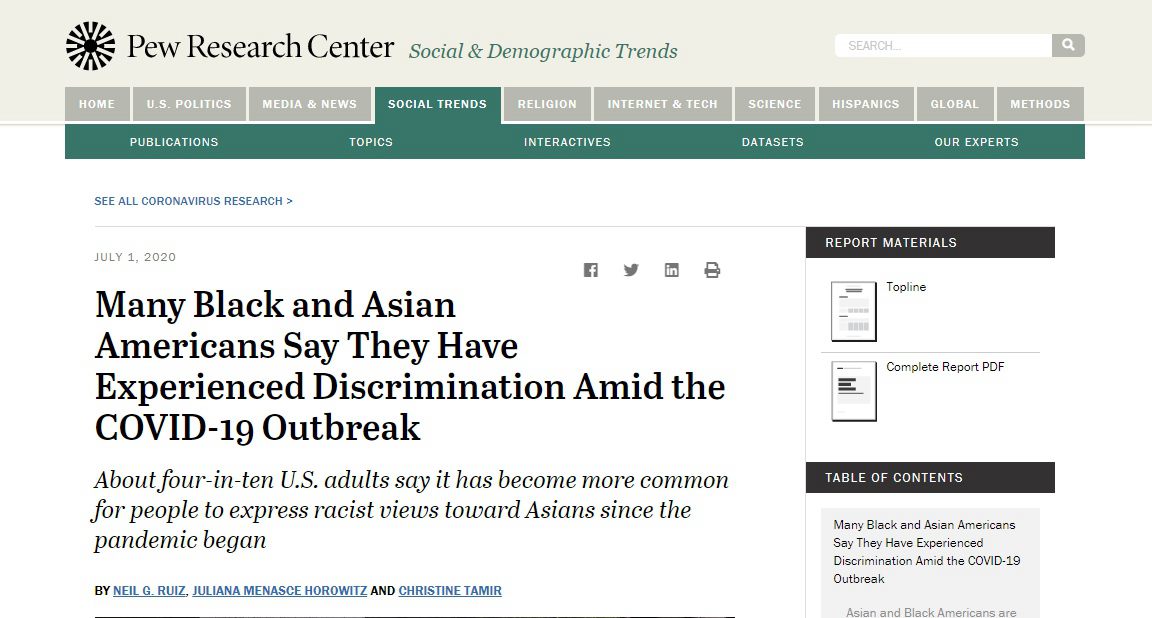


Screenshot of the report by Pew Research Center
Asian and black Americans have been more likely than other groups to report negative experiences due to their race or ethnicity since the COVID-19 outbreak in the United States, according to a new survey conducted by Pew Research Center.
About four in ten Asian and black respondents, namely 39 percent and 38 percent respectively, said people have acted as if they were uncomfortable around them because of their race or ethnicity since the outbreak, compared with 27 percent Hispanic participants and 13 percent white participants.
Similarly, 42 percent black adults and 36 percent Asian Americans said they "worry others might be suspicious of them if they wear a mask in public," while 23 percent Hispanic adults and 5 percent white citizens raised the same concerns.
Also, about three in ten Asian Americans, or 31 percent, said they have been subject to slurs or jokes due to their race or ethnicity since the coronavirus outbreak, followed by 21 percent black adults, 15 percent Hispanic adults and 8 percent white people.
The survey was conducted among 9,654 U.S. adults on June 4-10 amid nationwide protests against the killing of black man George Floyd by police.
It also found that a majority of Asian adults, or 58 percent, said it is more common for people to express racist or racially insensitive views about Asian people than it was before the coronavirus outbreak. In contrast, roughly four-in-ten white, black and Hispanic adults believed this is more common now.

 Award-winning photos show poverty reduction achievements in NE China's Jilin province
Award-winning photos show poverty reduction achievements in NE China's Jilin province People dance to greet advent of New Year in Ameiqituo Town, Guizhou
People dance to greet advent of New Year in Ameiqituo Town, Guizhou Fire brigade in Shanghai holds group wedding
Fire brigade in Shanghai holds group wedding Tourists enjoy ice sculptures in Datan Town, north China
Tourists enjoy ice sculptures in Datan Town, north China Sunset scenery of Dayan Pagoda in Xi'an
Sunset scenery of Dayan Pagoda in Xi'an Tourists have fun at scenic spot in Nanlong Town, NW China
Tourists have fun at scenic spot in Nanlong Town, NW China Harbin attracts tourists by making best use of ice in winter
Harbin attracts tourists by making best use of ice in winter In pics: FIS Alpine Ski Women's World Cup Slalom
In pics: FIS Alpine Ski Women's World Cup Slalom Black-necked cranes rest at reservoir in Lhunzhub County, Lhasa
Black-necked cranes rest at reservoir in Lhunzhub County, Lhasa China's FAST telescope will be available to foreign scientists in April
China's FAST telescope will be available to foreign scientists in April